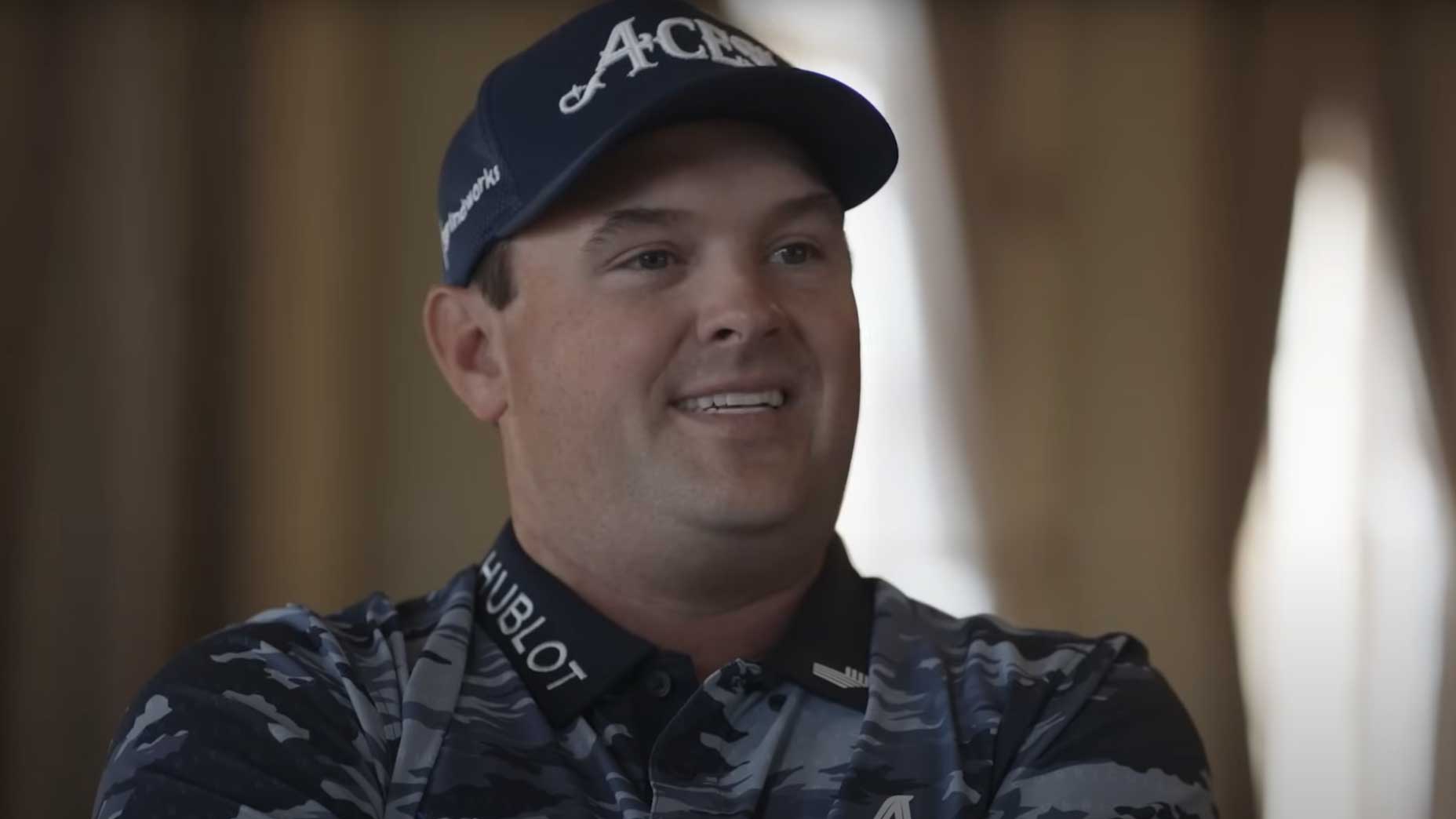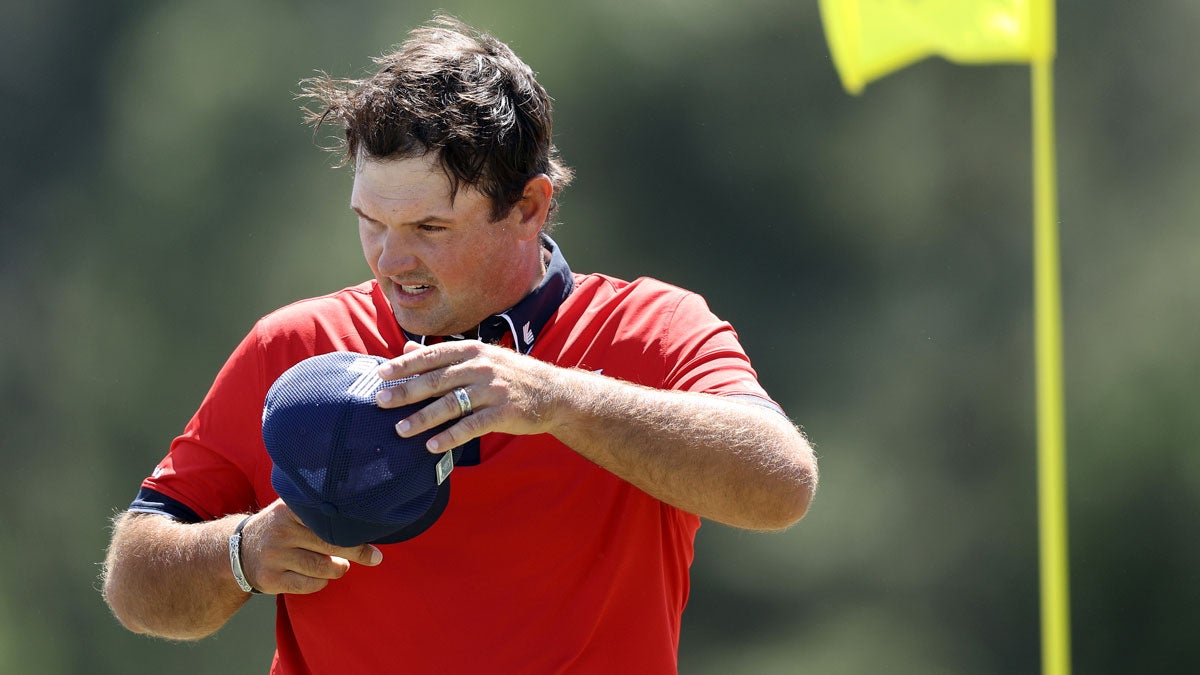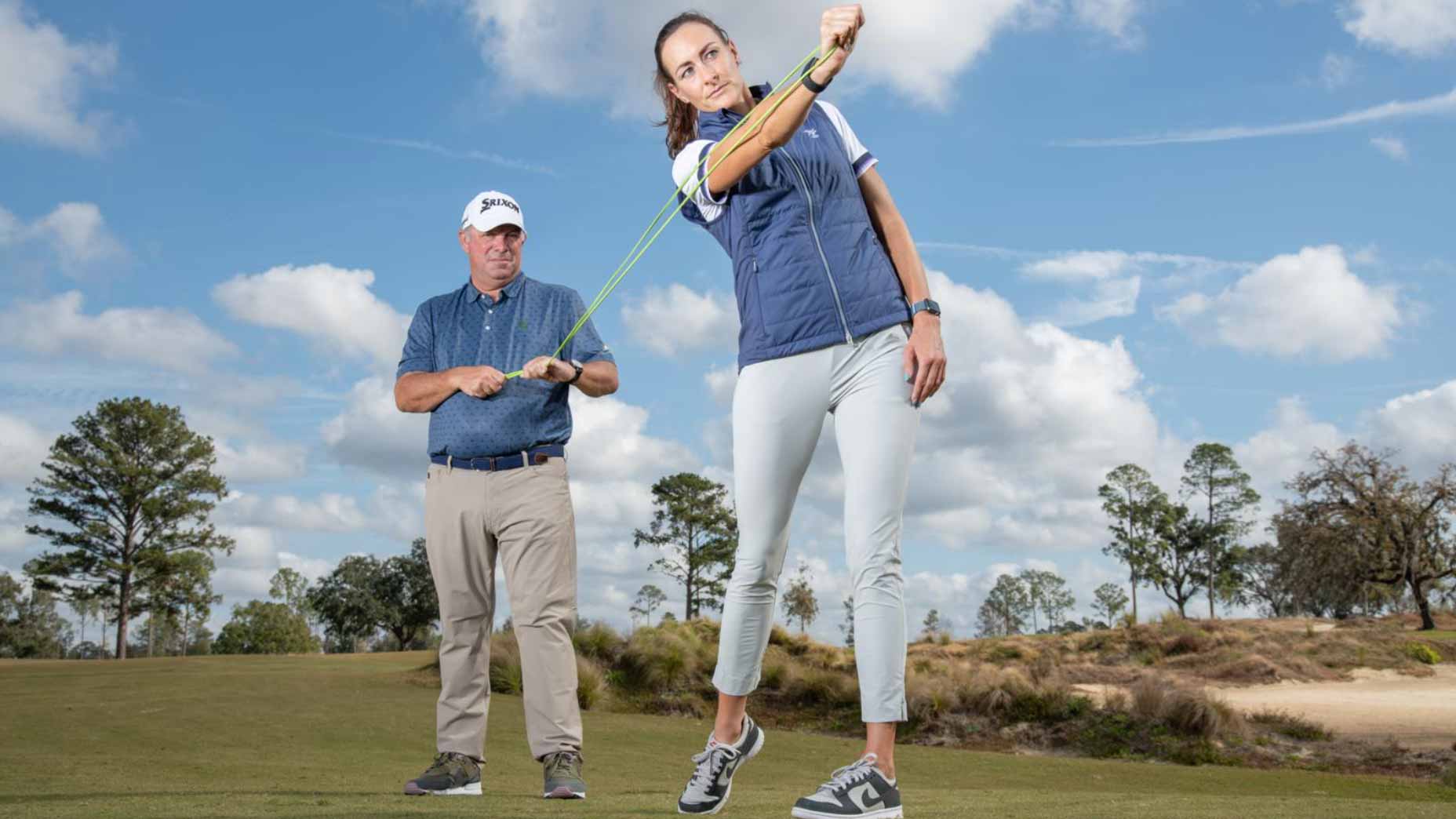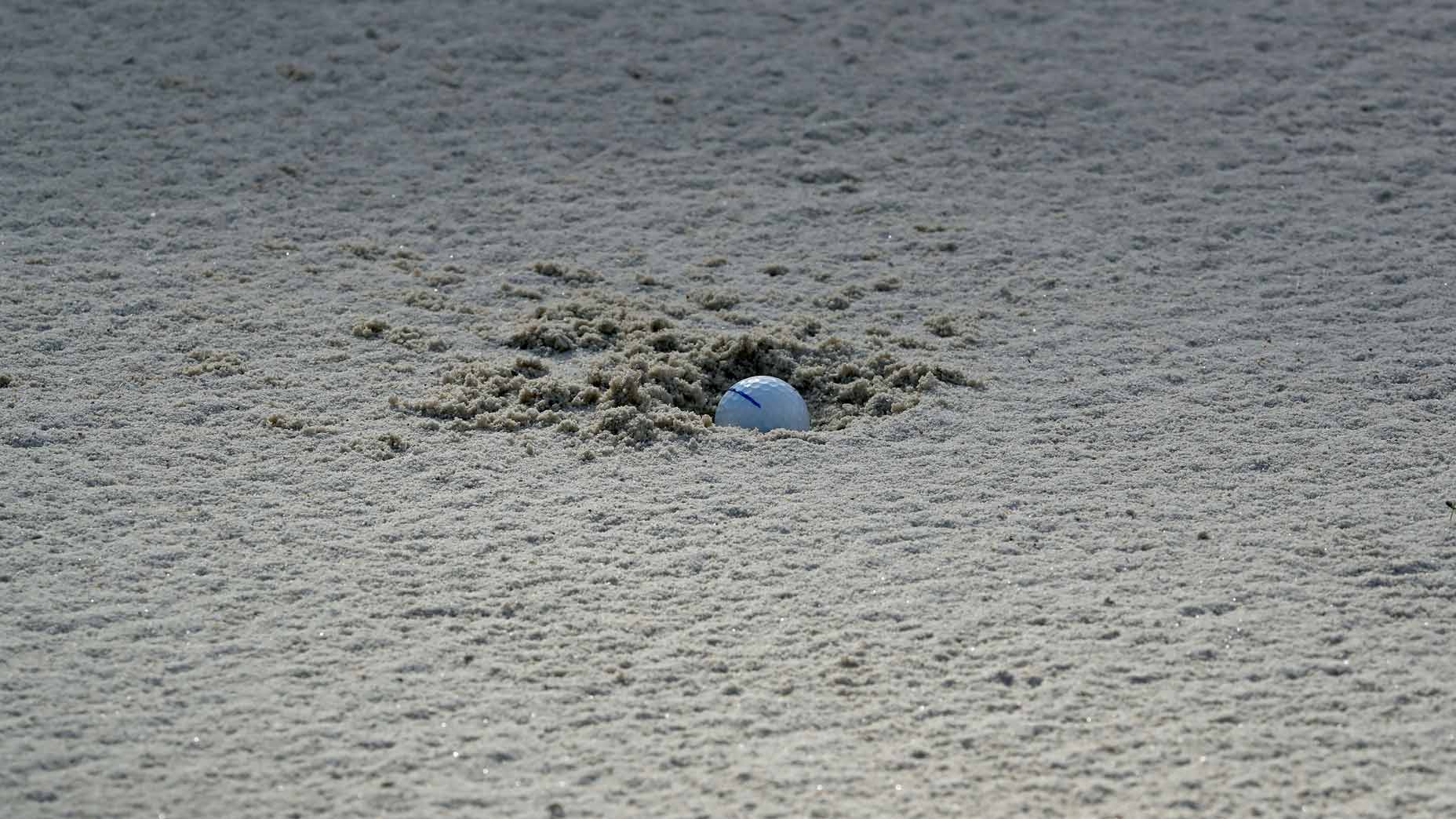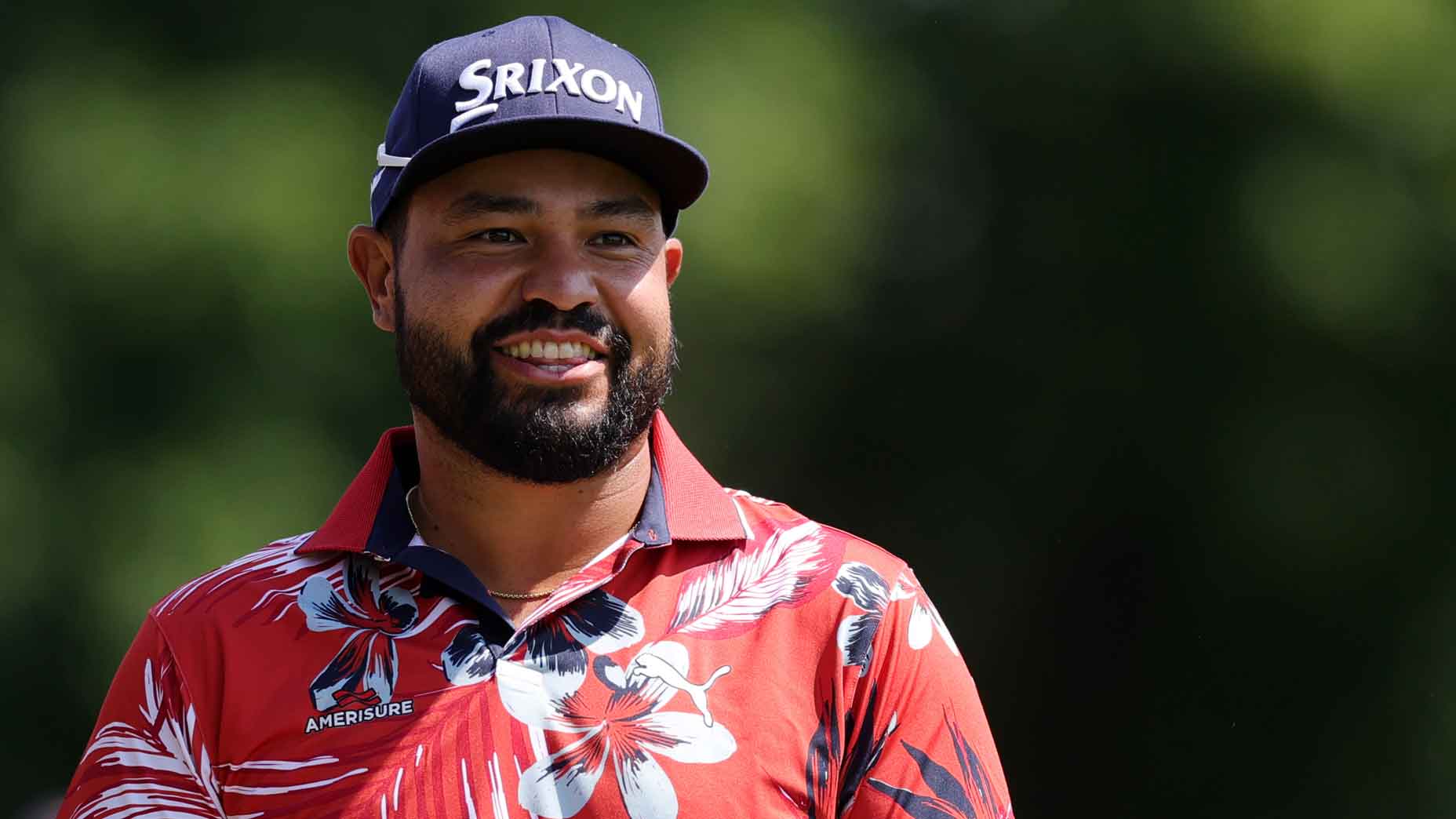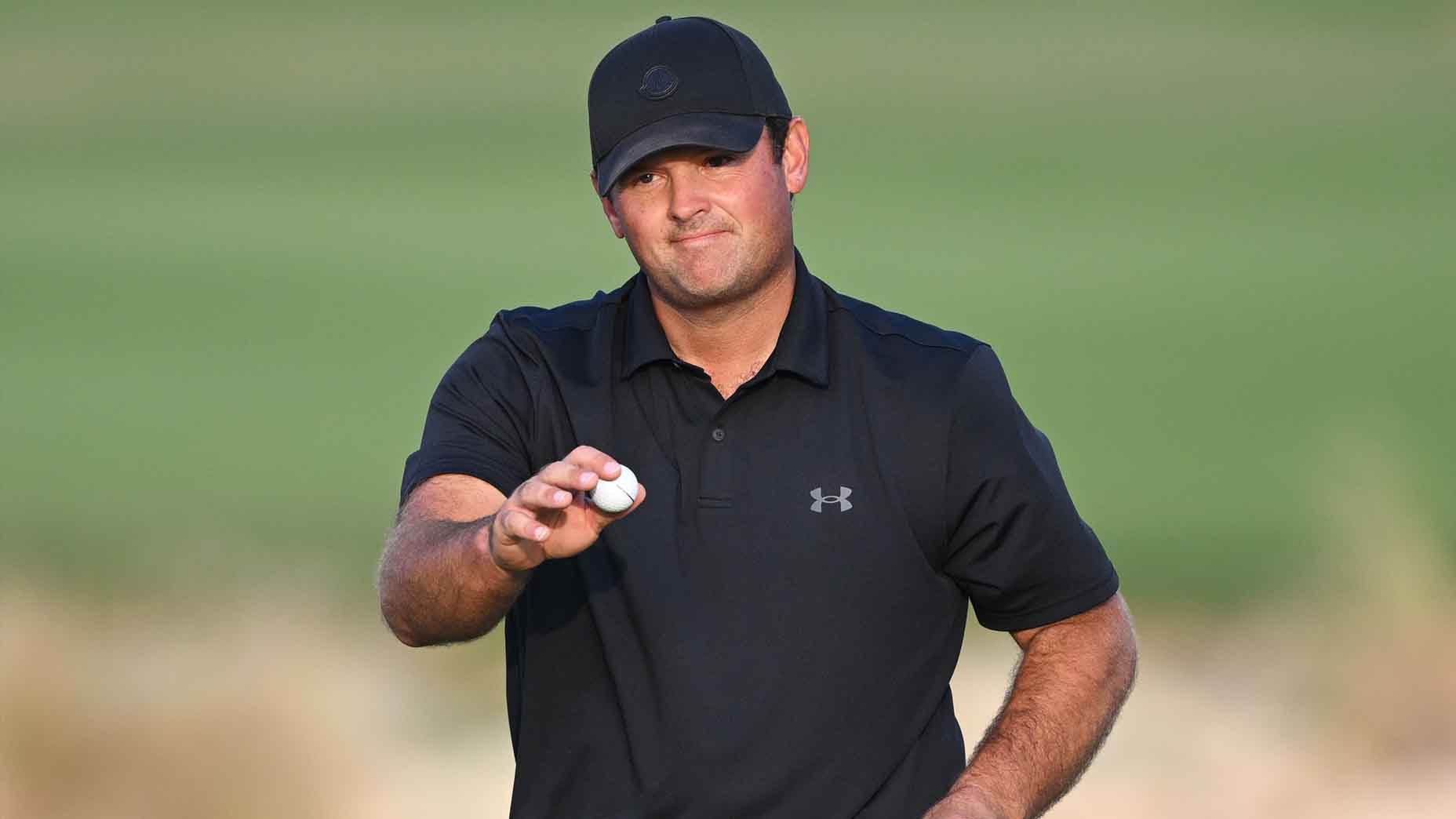When it comes to Patrick Reed, where do you begin?
He begins with the most important days of his career: the days he learned to be himself. It’s a theme that comes up again and again throughout our discussion. Patrick Reed is at his best when he’s embracing being Patrick Reed. It’s an approach that took him from a brash Monday qualifier to the heights of the professional game. Being Patrick Reed has gotten him pretty far.
Reed has been to the mountaintop. The 2018 Masters leads his resume, but that’s hardly all; he owns multiple World Golf Championships and nine PGA Tour wins and he’s starred in U.S. team competitions, channeling his Captain America alter-ego to strike fear in Ryder Cup opponents and jack up the drama of every match in which he’s involved.
Drama has attached itself to Reed’s career. Listen to his critics and they’ll reel off a list of offenses dating back to college that include clashing personalities, U.S. team drama, rules disputes, a departure for LIV and a series of subsequent lawsuits against members of the media. But if you ask Reed? Until this moment, I’d never gotten the chance.
Reed prefers his clubs do the talking, but that doesn’t mean he’s lacking things to say. And it turns out he thinks he’s gotten a raw deal from the media and the public. He thinks he’s still getting one now. The brief excerpt of our conversation from the Biltmore Hotel in Miami, Fla., at LIV’s content shoot is below, shortened and lightly edited — it’s the version that ran in the latest issue of GOLF’s print edition. The complete interview in all of its intrigue? That lives on YouTube and at the bottom of this post. Enjoy!
Dylan Dethier: What was the first big lesson you learned about professional golf?
Patrick Reed: It was [in 2011], right after we won our second national championship at Augusta State. I was 6-0 in match play there. I literally tapped in, we won, and then drove to Memphis because I was in my first-ever PGA Tour event. My caddie was our assistant head coach, and we made a game plan. I’m paired with two veterans; both have won on Tour before. And the next thing you know, about six holes in, I’m seeing both of them hit iron off this one tee.
My game plan was to hit 3-wood or driver, but I was like, ‘Oh, maybe I need to do what they do.’ So I completely changed and just tried to do what they were doing and ended up missing the cut. And the first thing my coach said was, “Well, why did you miss the cut? Did you stick to your plan? Why not?” So you have to keep your identity when you’re out there, because when you stray from your game plan, that affects you mentally. Then, all of a sudden, it’s a trickle effect — you start changing things, your mind starts going, you start second-guessing. That’s built me to get to where I am now — by doing it how I do it. And keep grinding.
DD: You don’t strike me as the kind of guy who’d look at the way someone else does it and be like, that’s the way I should do it.
PR: [Smiles] It was a one-and-done thing.
DD: And what is it that has made you so successful? Take someone else that hits it the same distance as you but never made it past, say, high-level college golf — what’s the difference between you two?
PR: I think the biggest thing is self-belief. You have to really believe you belong out here, believe you can win. And the only way that’s going to happen is by working really hard and keeping yourself uncomfortable. I feel like I’ve always done that through practices, giving myself bad lies, nestled down a little bit, maybe a little into the grain, on rough edges. I practice being uncomfortable, because when I do get those lies I’m like, I’ve done this before.
DD: Take me back to the final round of your win at the 2018 Masters. How’d you get it over the line?
PR: Playing with Rory McIlroy, who’s won a lot of majors — on paper he’s longer than me. I still have a better short game, but he’s longer. He’s in better form. The list goes on. When you’re in that final group, to either keep your lead or try to play like another major champion, it’d be very easy to stray from your game plan. But we just kept on preaching the entire week that, hey, we’re just going to stick to our plan and take one shot at a time — that’s it. Don’t focus on where you’re at. Don’t focus on who you’re playing with. Nothing.
DD: Is that easy to do?
PR: It’s very hard. It’s a lot of work. I’ve always prided myself on being very mentally strong, and so it’s a little easier for me to get into that mindset, that, hey, it’s Groundhog Day. We’re gonna go and just do the same thing we did yesterday. You can’t win that golf tournament with one golf shot, but you can lose it with one shot. You have basically 200-something battles throughout the four days in the overall war. Well, let’s see how many of those battles we can win.
Patrick Reed skewers Augusta National hole, wants it to ‘disappear’By: Alan Bastable
DD: What was the coolest moment that came from winning at Augusta?
PR: It was after the ceremony, after the press conference. I went back to Butler Cabin and I knew [my wife] Justine was there, but I didn’t know our kids, my mother-in-law, everyone that was at the house [that week] would be there. But when I opened the door, there was my daughter, first one at the door and she goes, “Daddy, you did it, I love you.” And she gave me a hug. That was the moment.
DD: As time went on, I don’t think you necessarily chose to be some sort of villain, but in these team events, in these Ryder Cup moments, you’ve seemed to play your best golf when people are against you. Even when other controversies came up — like at Torrey Pines, where there was a dispute about a drop, you won by 5 or 6.
PR: Take Torrey and that drop. I felt like it could have been handled a little differently on the Tour side; that they’d had my back a little more, rather than have one rules official come out and say, hey, he did everything correctly. But because the media wants to keep me in that villain role, they were gonna read it [the other] way. So I sat there and I was like, well, there’s one way to shut these people up: win this thing by more than two shots. You trounce everybody on Sunday. And, at the end of the day, if you’re not guilty and you feel like you did the right thing, you’re going to play better. If you know you did the wrong thing, do you really think you’re going to play well, especially with golf being 90 percent mental? No, you’re going to play poorly.
DD: Do you think you’ve done anything to earn that reputation?
PR: The reason that all came about was because of me being vocal about feeling like I was one of the best players in the world when I won the [2014 WGC-Cadillac Championship]. The top 69 guys were in that field. I had Tiger Woods in the group in front of me on Sunday. And I stared him down in red and black and end up winning the golf tournament against the best players. I think that was my third golf tournament I’d won in six, seven months. So through that period of time, yeah, I would have been one of the best players in the world. I probably shouldn’t have said something like that, but, hey, if you don’t believe in yourself, who else will?
DD: What would you like people to say about you, people who know you well? What’s Patrick Reed like? Well, he’s _____.
PR: I’d just want them to be truthful. That I’m not what the media says I am. I’m actually the total opposite. I mean, I’m a caring husband, father and friend. I love to give back. I love to grill, to cook. I just love to have fun and, of course, to grind — do what I need to do on the golf course. But outside the golf course, I’m just a guy.
You can watch the full interview below:
